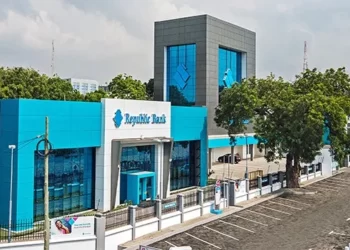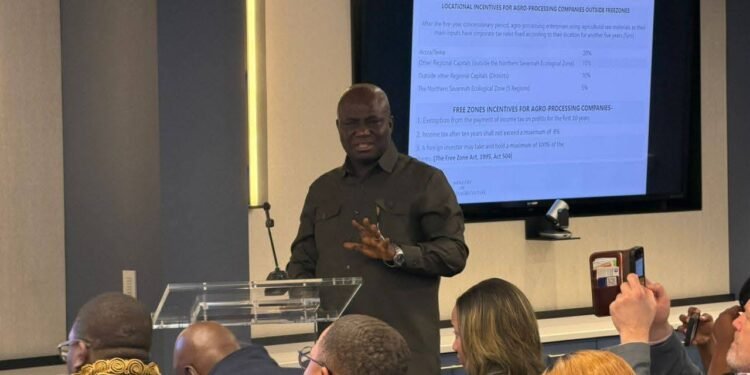The Ghana Stock Exchange (GSE) experienced a notable decline in trading volume and turnover at the close of the most recent trading session, yet the market received significant support from the banking sector, which kept the overall performance in positive territory.
Although the total number of shares traded decreased by 95%, banking stocks demonstrated resilience, boosting key market indices and sustaining investor confidence.
At the end of the trading session, a total of 261,970 shares were exchanged, corresponding to a market value of GHS 1,179,345.21. This represented a sharp decline from the previous trading day on Monday, September 16, when higher volumes and turnover were recorded.
The 95% decrease In the volume of shares traded and the 90% drop in turnover highlight the broader market’s slowdown. The reduced activity points to lower overall participation by traders, possibly driven by external economic factors or a wait-and-see approach by investors as market dynamics unfold.
Banking Stocks Drive Gains
Despite the market-wide downturn in activity, the banking sector emerged as the anchor of the day’s performance. Two major banking stocks— Ecobank Transnational Incorporated (ETI) and GCB Bank Limited posted gains, mitigating the effects of the trading decline and helping to lift market sentiment.
Ecobank Transnational closed the day with a 6.25% gain, rising from GHS 0.16 per share to GHS 0.17, adding a pesewa to its value.
Meanwhile, GCB Bank, one of the country’s largest financial institutions, saw its shares climb by 1.35%, ending the session at GHS 6.00 per share. This marked an increase of GHS 0.08 from its previous closing price of GHS 5.92.
GCB Bank has been one of the best-performing stocks on the GSE this year, with a year-to-date gain of 76.5%. It began the year at GHS 3.40 per share and has steadily risen in value, driven by strong financial results, solid market positioning, and investor confidence in its future growth prospects.
With this performance, GCB Bank is currently ranked third in terms of year-to-date performance on the GSE, underscoring its importance in the financial sector and its role in buoying the overall market.
Market Indices Reflect Growth
The bullish performance of banking stocks had a positive impact on the broader market indices. The GSE Composite Index (GSE-CI), which tracks the performance of all listed stocks, edged up by 8.83 points, or 0.2%, to close at 4,503.17.
This represented a one-week gain of 3.83%, a four-week gain of 3.44%, and a substantial year-to-date increase of 43.86%. Meanwhile, the GSE Financial Stocks Index (GSE-FSI), which tracks the performance of financial sector stocks, including banks and insurance companies, rose by 0.77% to 2,153.83 points.
This contributed to a one-week gain of 1.73%, a four-week gain of 1.69%, and a year-to-date increase of 13.27%. These gains underscore the resilience of the financial sector, which continues to provide stability and growth potential even in the face of broader market volatility.
Among the stocks traded, GCB Bank recorded the highest volume of activity, with 155,305 shares changing hands. This was followed by MTN Ghana, which saw 90,789 shares traded, and Ecobank Transnational with 4,600 shares. Fan Milk also contributed to the trading session with 4,283 shares exchanged.
Despite the reduced overall trading activity, the dominance of GCB Bank and MTN Ghana in terms of volume highlights the continued interest in large-cap stocks, particularly in the banking and telecommunications sectors. These sectors remain central to the GSE’s overall performance and continue to attract investors looking for stability and growth in their portfolios.
The bullish activity In the banking sector also contributed to an increase in the market capitalization of the Ghana Stock Exchange, which rose to GHS 94 billion.
This growth reflects the collective market value of all listed equities and demonstrates the positive contribution of banking stocks to the overall market performance. The strong performance of the banking sector amid a decline in broader market activity reinforces its importance as a key driver of growth on the GSE.
Investors are likely to continue favoring banking stocks, particularly those like GCB Bank, which have shown consistent gains and robust financial health. As the broader economy faces challenges, including inflationary pressures and global economic uncertainties, the banking sector’s stability and profitability make it an attractive option for investors seeking both growth and security.
Moreover, with Ghana’s financial system playing a central role in economic development, banking stocks are likely to remain pivotal in shaping the future of the GSE.
READ ALSO: Frimpong Manso Institute Raises Concerns on NDC Demo Against EC























